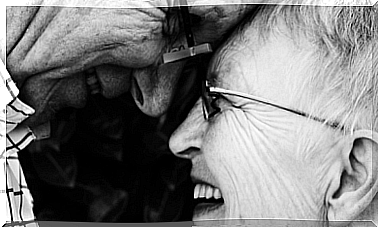Interesting Psychological Effects

As humans, we can be victims of certain psychological effects. Some of these effects can be harmful, while others are quite harmless. Some are typical of certain societies, while others are typical of, for example, certain age groups.
Either way, these psychological effects can cause your brain to overlook some of the information you’re exposed to on a daily basis.
It is important to categorize everyday information. While your brain can make mistakes, these psychological effects can often make you more adaptable to things. Think cavemen. They had to be fast and efficient, rather than analytical and slow.
In modern times, advertising, businesses and society are exploiting these so-called psychological pitfalls to increase their sales. In this article we tell you a little more about the most common and interesting psychological effects.

Some of the most interesting psychological effects
The Forer Effect
How many times have you read your horoscope and thought, “This applies exactly to me!” However, this is just the way your brain tends to think. What you’ve read doesn’t just apply to you. When this happens, you fall victim to the Forer effect.
The Forer effect occurs when we hear or read something that seems to be especially meant for us. However, these are often very vague descriptions.
For example:
You will probably see for yourself that this description could actually apply to everyone. Many people may start new projects.
Who doesn’t know someone who is going through a difficult period? Who does not often suffer from colds or back pain? People are generally more active on Mondays and Tuesdays because they have just enjoyed their weekend off.
The reference effect
This effect is often used in advertising campaigns. Imagine that you go to a sale and there is a jacket that you really want. However, it comes with two price tags: one with a very high price and another with a very low price.
Without thinking too much about it, you buy the jacket for the lower price. What happened? The first prize was an anchor that you used as a reference. Since the jacket was on sale, you just couldn’t pass up the opportunity to buy it.
Fundamental Attribution Error
Sometimes we think that a person’s personality is the cause of how they behave. Instead, however, we should consider the circumstances that could influence the way that person acted. Consequently, this attribution can affect how people are perceived.
The effect of the false consensus
This effect occurs when we overestimate how many people agree with us. It is a way of exaggerating our confidence in our own beliefs, even if we are wrong.
This can have many negative effects, such as making us unable to open ourselves to the world, to the ideas of others and to how others feel or think.
This creates the chance that we will miss out on important and useful information. For example, imagine that you own a business and you don’t want to work with people who think differently and have a different outlook on life.
The illusory correlation effect
This effect can cause us to overestimate the relationship between two variables that are in reality completely independent of each other.
Think pathological gamblers. They can tell themselves that a slot machine has a chance because it is still full of coins. They tie time to chance, although slot machines are known to follow a random system.
Self-fulfilling prophecy
This is when we have very strong beliefs about something specific and then act entirely on those beliefs. This causes reality to confirm those beliefs as if they were predictions.
For example, think of a person who is extremely jealous for no apparent reason. This can cause this person to constantly doubt their partner. It can even get so bad that he starts spying on his partner and ends up pushing him completely to the limit, leaving him with no choice but to end the relationship.
Bias blind spot
This effect occurs when we are blind to our own biases and the effect they have. For example, when you think that certain things can only happen to others, when in fact they can happen to anyone.









